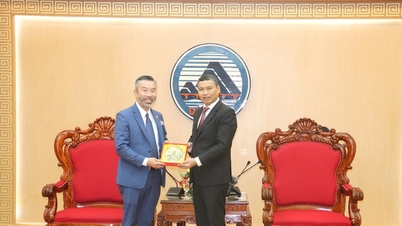
Japanese chipmaker Rohm is partnering with venture capital firm Quanmatic to optimize its probe inspection (or wafer inspection - Electrical Die Sorting/EDS) process, using quantum computing for the first time to automate the process on an industrial-scale semiconductor manufacturing line.
After a year of intensive research, the two companies announced that full implementation of the probe inspection process will begin in April 2024 at Rohm plants in Japan and overseas. The new technology will significantly increase production productivity and profitability.
EDS is performed on each chip to identify damaged chips, which are repaired or discarded before wafer cutting and individual die packaging, ensuring the required quality is met, which is critical to improving semiconductor yield.
As semiconductor manufacturing technology advances, EDS becomes increasingly complex, making it increasingly difficult to find solutions to optimize the process.
To solve this problem, Quanmatic has developed an operating system that combines quantum computing with traditional computing, leveraging Rohm's decades of data and semiconductor manufacturing experience.
Representatives of both companies expect quantum technologies to be used to optimize manufacturing processes in various fields in the near future.
Rohm, headquartered in Kyoto, Japan, manufactures integrated circuits, discrete semiconductors, and other electronic components. It is one of the world's leading suppliers of silicon carbide semiconductor substrates and power management devices, used in electric vehicles and other industrial applications.
Quanmatic is a Japanese venture capital firm that develops software, including algorithms that improve the efficiency and accuracy of quantum computing.
The company is currently developing 'computing optimizers' that use quantum technology to solve various problems in business and industry.
(according to OL)

'License plate covering technology' to avoid traffic fines - a problem that gives Russia a headache

UK pushes antitrust fight against US tech giants

The reasons leading to the decline of social networks
Source







![[Photo] Binh Trieu 1 Bridge has been completed, raised by 1.1m, and will open to traffic at the end of November.](https://vphoto.vietnam.vn/thumb/1200x675/vietnam/resource/IMAGE/2025/10/2/a6549e2a3b5848a1ba76a1ded6141fae)



































































































Comment (0)